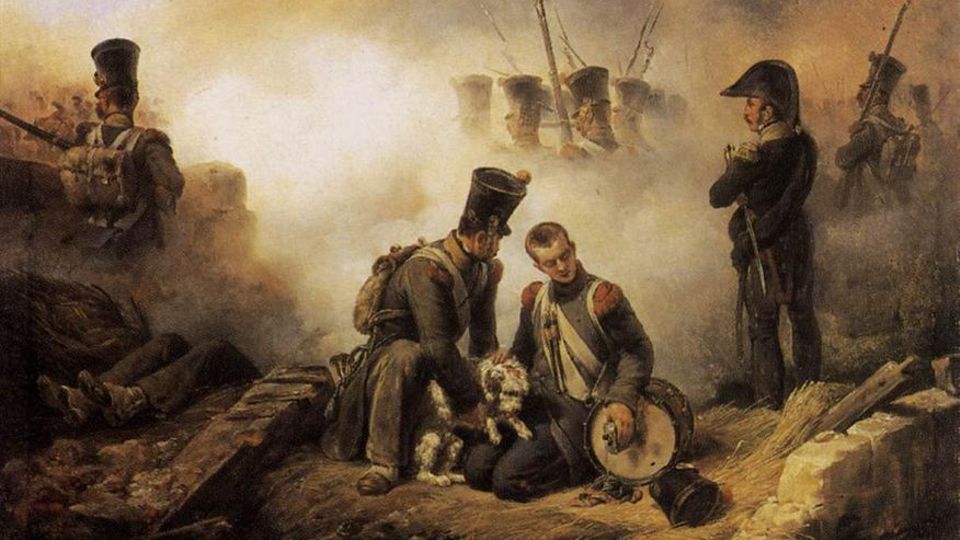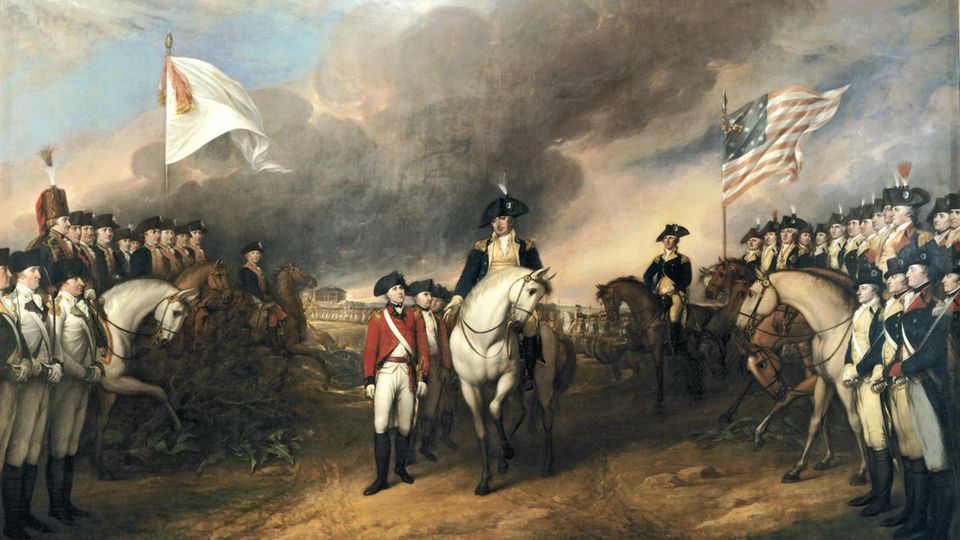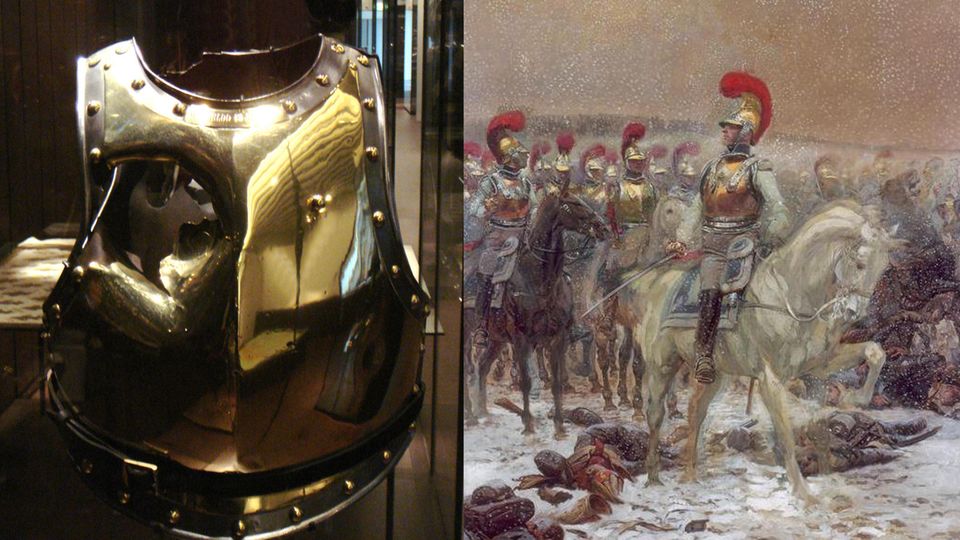Clever military theory
Antoine-Henri Jomini – the ideas of a Napoleonic general determine the fighting in Ukraine
Antoine-Henri Jomini and Clausewitz took part in the double battle of Jena and Auerstedt. This is where Old Prussia perished ingloriously. The painting by Jean Baptiste Édouard Detaille shows a French hussar with a captured flag.
© akg-images/ / Picture Alliance
Antoine-Henri Jomini was considered the most important military theorist of the 19th century. As a young man he learned from Napoleon, the greatest military leader of his time. His ideas about dominating a battlefield are reflected in the fighting in Ukraine today.
As a young man, Antoine-Henri Jomini was able to get into Marshal Ney’s circle. The man Napoleon called “the bravest of the brave.” He then took part in France’s campaign against Prussia on staff, experienced the double battle of Jena and Auerstedt and the fall of Old Prussia.
He later switched to the Tsar’s service, which was not unusual at the time, to switch sides so to speak, especially since he himself was not French, but Swiss. Antoine-Henri Jomini published more than 30 books on military theory, the main work being the “Art of War” (“Précis de l’art de la guerre”). In the following decades he developed into the leading military theorist of the 19th century. Jomini is so important that his influence can be felt everywhere in a roundabout way.
In Germany his importance was never really recognized, as they had Clausewitz here. The two contemporaries couldn’t be more different: Clausewitz is a philosopher of war who only addresses practical solutions in passing. Jomini’s approach is much more pragmatic; he did not write works to make sense of, but rather textbooks with the help of which The military should do their jobs at the time. There was one crucial difference: Clausewitz died in 1831 and remained a “one-book phenomenon”. Jomini lived a very long time, spread his method and was not only a brilliant military man but also a businessman.
Antoine-Henri Jomini recognized the importance of lines
One of Jomini’s concepts dominates Ukraine’s war: the idea of the box, the box with four sides. Jomini viewed every theater of war as a large field. And now comes the special thing: To dominate the field, you don’t have to occupy it, you just have to master its limitations, he taught. This axiom is derived from an observation by Jomini from the Napoleonic era. For him, the focus is not on the battle, but on the campaign. As a rule, both opponents occupy two lines when hostilities begin. At Jomini it can be rivers, mountain ranges, a number of towns with road connections. His captivating idea was quite simple: all you had to do was try to bring a third line under control in addition to the two lines you already had, and then the campaign would be over. Whoever mastered three lines got the inside of the box.
Jomini’s version of flanking
And why? Jomini was one of the first to systematically recognize the importance of the supply lines. If the opponent controlled three sides of a box, then he immediately threatened the opponent’s supply lines, which only led out of the box on one side. If you got to the back of your opponent along the lines, he had to withdraw from the terrain and the box would then fall into your hand.
Antoine-Henri Jomini shrinks to a tactical level
What was the Rhine in Jomini’s case or the Mississippi in the American Civil War shrinks to a tactical level in Ukraine, to rows of trees, small ridges and villages and towns. Instead of armies with tens of thousands of soldiers, battalions and individual storm groups move here. But the procedure remains comparable. As a rule, the Russians succeed in advancing when they have surrounded the enemy on three sides. Strong, difficult positions are thus isolated. They then become weaker day by day. For example, because the Russians can fire on the only open side of the box. And because they can support their own initiatives from all three sides. Based on Jomini’s ideas, one can say: No matter what is in the box, it becomes weaker and less valuable if three flanking sides are lost. Certainly the Russians are not moving forward with Jomini’s art of war in hand, but it shows how correct his insights into the art of warfare still are today.





